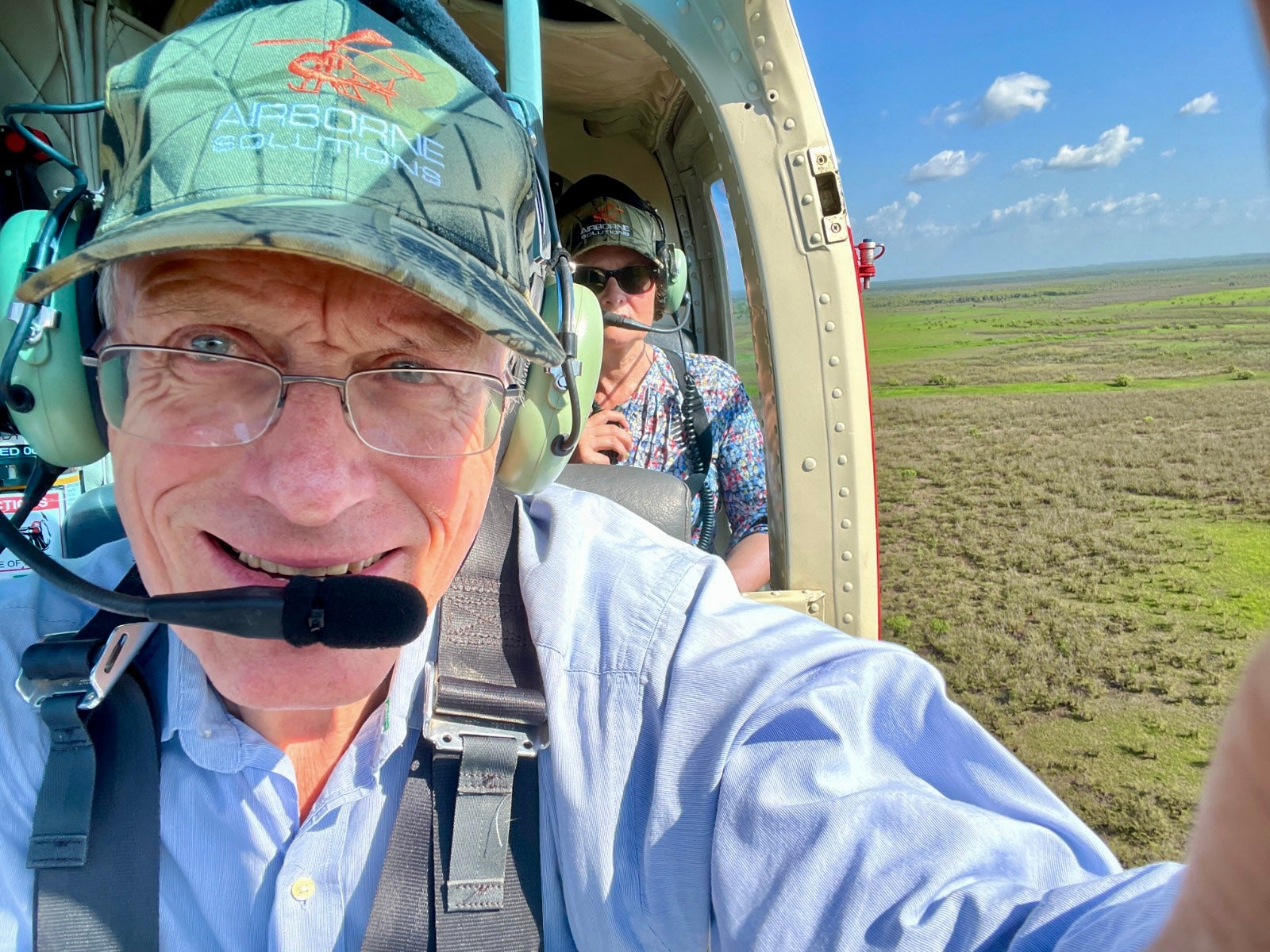Australia’s tropical north: enjoying nature’s bounty in lush, colourful Darwin
Simon Calder immerses himself in fascinating history, natural wonders, delicious food and drink and stunning sunsets in this Aussie paradise
Which is the closest Australian capital to the UK? By a good few hundred miles over Perth, it is Darwin – the biggest city in the Northern Territory. Here, Bali is much nearer than Bondi Beach in Sydney, and as a gateway to tropical adventure, the young metropolis is full of colour and life.
Darwin is closer – both geographically and climatically – to South East Asia than to other Australian capitals. The heat embraces you the moment you arrive – and the welcome from the citizens who make this modest but appealing metropolis their home is equally warm.
The city is named after the naturalist and father of the theory of evolution, Charles Darwin, but it was originally known as Palmerston. The town hall is one of very few buildings constructed before 1974 of which anything survives. Across the road, all that remains of the original Anglican cathedral is the entrance, silent testament to the destructive power of nature. The reason: overnight on Christmas Eve, 1974, Cyclone Tracy brought destruction to Darwin.
The event is chronicled at the Museum and Art Gallery of the Northern Territory, or MAGNT for short. Their Curator of Territory History, Jared Archibald, told me: “People want to remember Cyclone Tracy because it is such a big part of Darwin’s history, and the Northern Territory’s history, and Australian history. But we want to remember it as something that, although it was awful, good has come from it.”
Due to the extreme weather event half-a-century ago, Darwin looks like a thoroughly modern capital – with a vibrant 21st century art scene. In the past few years, local and international artists have brightened many city centre walls. You can even bring the art to life using the Darwin street art festival app, which gives you some extraordinary augmented reality.
Creativity continues in a very satisfying fashion when you join an official Gourmet Tour – sampling the best of Darwin’s bars and restaurants. My gastronomic journey began on the waterfront at Snapper Rocks with some exquisite seafood. That was quickly followed by Sri Lankan street food at Ella by Minoli – where delicious dishes are created by celebrity chef Minoli de Silva, star of Australia MasterChef. Follow that with some seasonal produce and craft beer at Phat Mango, and indulge with a nightcap at Charlie’s Bar – which has the feel of a stylish speakeasy.
Going beyond Darwin can be astonishingly fast and fun. Airborne Solutions offers a “resort and swim tour” that takes you across the tropical north by helicopter, bestowing the gift of time. Drives that would take hours are replaced by flights of minutes.

First stop: a secret tropical hideaway, Crab Claw, washed by the waters of Bynoe Harbour. After a coffee, you can survey the mosaic of wilderness making up Litchfield National Park – which covers 1,500 square kilometres and encloses much of the Tabletop Range. Aboriginal people have lived amid this natural beauty for thousands of years.
At Sandy Creek, the brilliant pilot Damian Jowett landed his helicopter on a sandstone ledge – right beside a waterhole that comprises a natural infinity pool – with cool, sparkling clean water where you can float through time. (Of course, wherever you are in the Northern Territory, always seek local advice about places that are safe to swim before you jump in.)
Final stop: Lake Bennett, where you can kayak, fish or swim. This gorgeous freshwater lake was created half a century ago by a local landowner, George Bennett, who decided it was just what the region needed. The lake that bears his name has another benefit: irrigating mango plantations in the area.
Thanks to the direct nature of aviation, you can be back in Darwin in good time for the daily delight that is sunset.
Between April and October, the place to be is Mindil Beach – where Darwin’s multicultural magic is most in evidence. Every Thursday and Sunday more than 200 stalls dispense unique crafts and cuisine. Thai, Korean, Japanese, Spanish and Italian are just some of the cuisines on offer. But a favourite here in Darwin is laksa, the great South East Asian soup – best consumed with fresh papaya juice on the beach as the sun sinks into the majestic harbour.
Sunrise and sunset provide a natural rhythm to life in the tropics. Since I first came to Darwin three decades ago, I’ve been thrilled to see how the city has evolved. As Charles Darwin didn’t quite say: Darwin is a natural selection.
Fly to Darwin from the UK via Singapore or Bali, or travel via another Australian capital. Compared with other entry points to Australia, airport arrival formalities are swift and efficient. The journey from the airport to the city’s waterfront takes just 20 minutes.
The Adina Apartment Hotel is a modern addition to the waterfront, and well placed for exploring the city.




